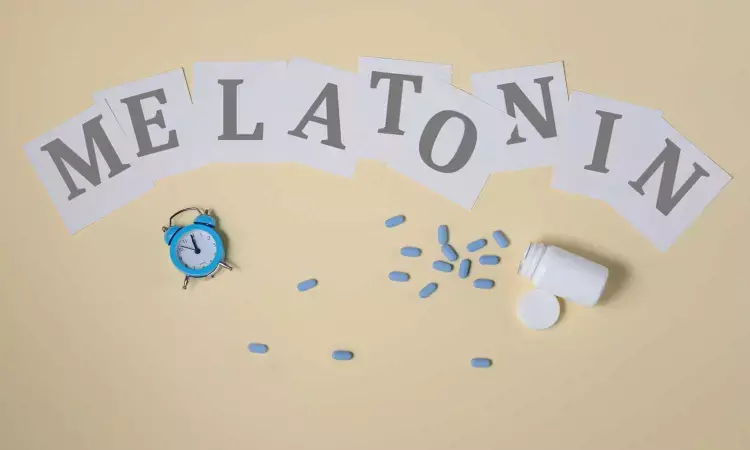- Home
- Medical news & Guidelines
- Anesthesiology
- Cardiology and CTVS
- Critical Care
- Dentistry
- Dermatology
- Diabetes and Endocrinology
- ENT
- Gastroenterology
- Medicine
- Nephrology
- Neurology
- Obstretics-Gynaecology
- Oncology
- Ophthalmology
- Orthopaedics
- Pediatrics-Neonatology
- Psychiatry
- Pulmonology
- Radiology
- Surgery
- Urology
- Laboratory Medicine
- Diet
- Nursing
- Paramedical
- Physiotherapy
- Health news
- Fact Check
- Bone Health Fact Check
- Brain Health Fact Check
- Cancer Related Fact Check
- Child Care Fact Check
- Dental and oral health fact check
- Diabetes and metabolic health fact check
- Diet and Nutrition Fact Check
- Eye and ENT Care Fact Check
- Fitness fact check
- Gut health fact check
- Heart health fact check
- Kidney health fact check
- Medical education fact check
- Men's health fact check
- Respiratory fact check
- Skin and hair care fact check
- Vaccine and Immunization fact check
- Women's health fact check
- AYUSH
- State News
- Andaman and Nicobar Islands
- Andhra Pradesh
- Arunachal Pradesh
- Assam
- Bihar
- Chandigarh
- Chattisgarh
- Dadra and Nagar Haveli
- Daman and Diu
- Delhi
- Goa
- Gujarat
- Haryana
- Himachal Pradesh
- Jammu & Kashmir
- Jharkhand
- Karnataka
- Kerala
- Ladakh
- Lakshadweep
- Madhya Pradesh
- Maharashtra
- Manipur
- Meghalaya
- Mizoram
- Nagaland
- Odisha
- Puducherry
- Punjab
- Rajasthan
- Sikkim
- Tamil Nadu
- Telangana
- Tripura
- Uttar Pradesh
- Uttrakhand
- West Bengal
- Medical Education
- Industry
Melatonin Supplementation Shows Promise for Managing Diabetic CKD: A New Randomized Trial Investigates Its Effects

Iran: A new study published in the BMC journal Trials is exploring the potential benefits of melatonin supplementation for patients with diabetic chronic kidney disease (CKD). The double-blind, randomized controlled trial aims to investigate the effects of melatonin on key metabolic parameters, oxidative stress, and inflammatory biomarkers, which are often elevated in individuals suffering from diabetes and kidney disease.
Diabetic CKD is a serious and growing health issue characterized by a decline in kidney function due to the damaging effects of diabetes. It is often associated with increased oxidative stress, inflammation, and disruptions in lipid metabolism, all of which exacerbate the disease progression. Current treatment options primarily focus on managing blood sugar levels and slowing kidney function decline, but additional therapies are needed to address the broader metabolic disturbances seen in these patients.
Melatonin, a hormone naturally produced by the pineal gland, is best known for regulating sleep-wake cycles. However, emerging research suggests melatonin may also have potent antioxidant and anti-inflammatory properties. Given these potential benefits, Hossein Imani, Department of Clinical Nutrition, School of Nutritional Sciences and Dietetics, Tehran University of Medical Sciences, Tehran, Iran, and colleagues hypothesize that melatonin supplementation could help mitigate the metabolic and oxidative dysfunctions associated with diabetic CKD.
For this purpose, the researchers are conducting a double-blind, randomized, placebo-controlled clinical study to investigate the effects of melatonin supplementation in diabetic patients with chronic kidney disease (CKD). Laboratory assessments will be used to diagnose diabetic CKD in the participants. Forty-eight eligible diabetic patients with CKD will be selected and randomly assigned to receive either 5 mg melatonin tablets or an identical placebo twice daily for 10 weeks. Throughout the study, participants will be asked to maintain their usual diet and physical activity levels.
The study's primary outcome is to evaluate changes in oxidative stress and inflammatory biomarkers. Secondary outcomes include assessing changes in lipid profiles, renal function indicators, fasting blood sugar levels, serum insulin levels, and systolic and diastolic blood pressure (SBP and DBP). Other secondary measures will include serum phosphorus concentration, sleep quality, body weight, body mass index (BMI), and waist circumference (WC).
Statistical analysis will be performed using SPSS software (version 25) to determine the significance of the results.
The researchers note that diabetic kidney disease, a leading cause of end-stage renal disease (ESRD), progresses more rapidly in diabetic patients compared to non-diabetic CKD. Preventing progression to ESRD can improve a patient's quality of life. Melatonin, a natural antioxidant, has shown promise in protecting against various pathophysiological conditions by scavenging free radicals and modulating apoptosis.
"Animal studies suggest melatonin can reduce oxidative stress, inflammation, and lipid peroxidation in the kidneys, improving metabolic parameters and kidney function. Despite numerous experimental studies, clinical trials on melatonin’s efficacy in DKD patients are limited, highlighting the need for further human studies to explore its potential benefits," they concluded.
Reference:
Sadeghi, S., Hakemi, M.S., Pourrezagholie, F. et al. Effects of melatonin supplementation on metabolic parameters, oxidative stress, and inflammatory biomarkers in diabetic patients with chronic kidney disease: study protocol for a double-blind, randomized controlled trial. Trials 25, 757 (2024). https://doi.org/10.1186/s13063-024-08584-x
Dr Kamal Kant Kohli-MBBS, DTCD- a chest specialist with more than 30 years of practice and a flair for writing clinical articles, Dr Kamal Kant Kohli joined Medical Dialogues as a Chief Editor of Medical News. Besides writing articles, as an editor, he proofreads and verifies all the medical content published on Medical Dialogues including those coming from journals, studies,medical conferences,guidelines etc. Email: drkohli@medicaldialogues.in. Contact no. 011-43720751


